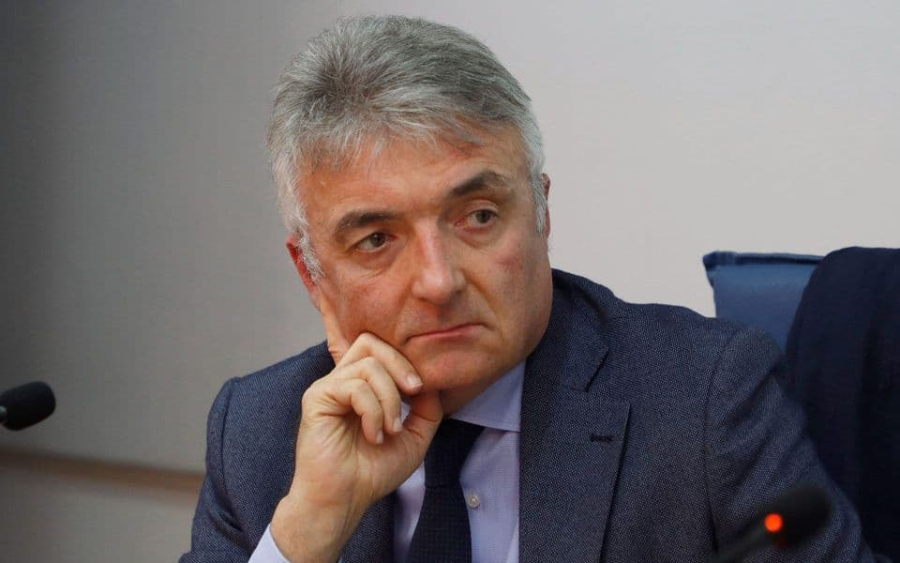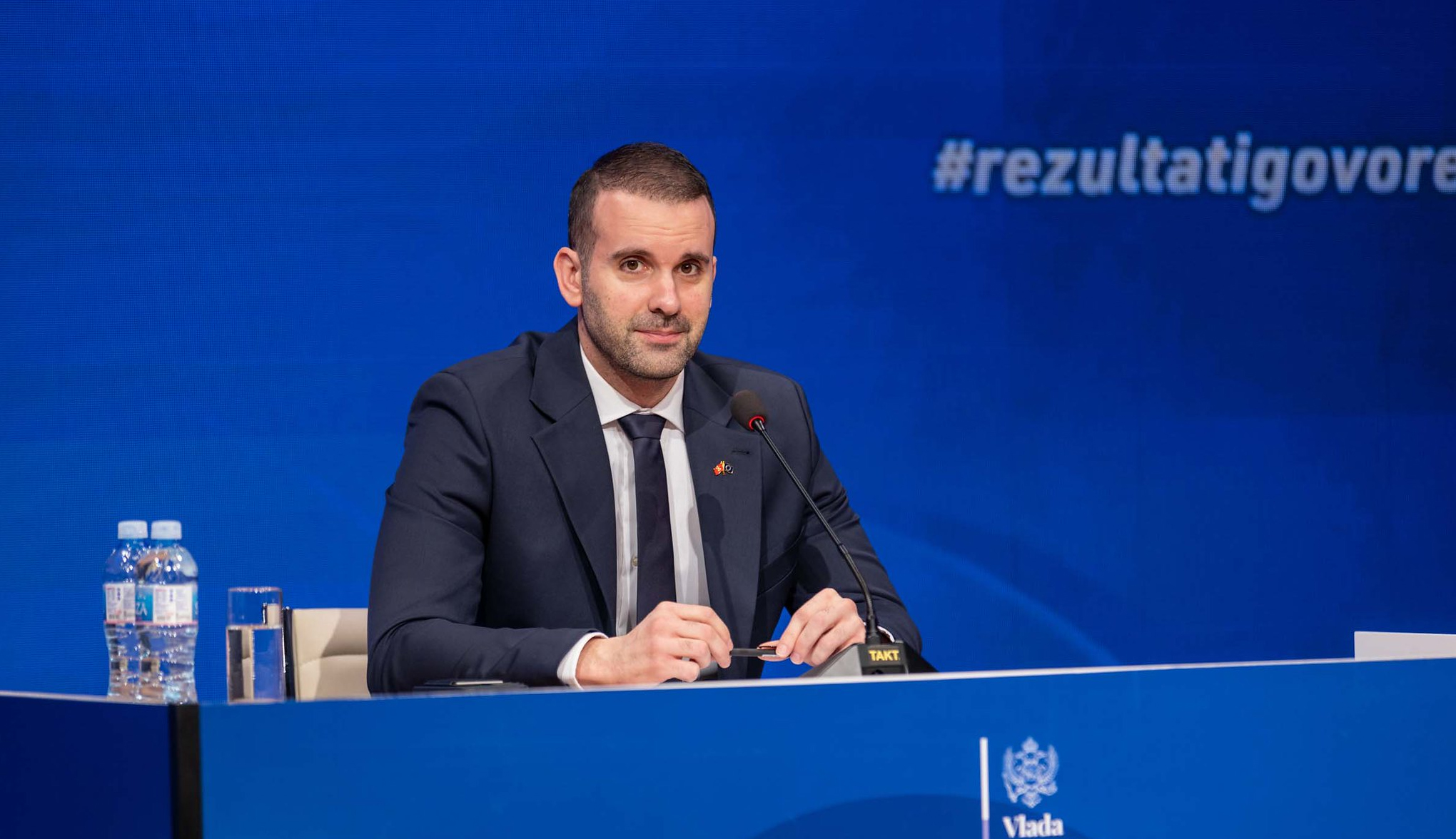Montenegrin Prime Minister Milojko Spajić, to a journalist’s question – which was put to him at the press conference on the occasion of the first hundred days of the 44th Government – whether he would resign if his optimistic promises that the average monthly salary should be 1000 euros, and the minimum 700 euros, he answered in the affirmative. At the same time, he gave himself a deadline of one year.
Although economic promises were the backbone of the pre-election campaign of the Movement “Europe Now!” it seems that the new government has done the least in this regard.
Economic optimism
Spajić’s “technocratic” model of governance, with an insistence on development and investment projects and with the denial or disparagement of political issues, which he mentions marginally or does not mention at all, i.e. refuses to make statements about them – are still a big unknown. No one has yet seen the “Europe Now 2” program in the form of a complete written document. Members of Spajić’s cabinet also recognize such a situation. All these points to his great (personal) improvisation – with possible serious consequences.
The IMF delegation, which recently visited Montenegro, was brutally honest: the increase in salaries and pensions “must be fiscally sustainable”. Such a cold warning is an unpleasant reminder that Spajić’s plans are based on unreliable projections. It is already clear that basic financial stability requires borrowing abroad. Experts from the IMF defined it as “a high need for external borrowing”.
The Prime Minister is not even trying to bring some of the investment and development projects into line with legal procedures. He showed this during his recent visit to France, when – regardless of the clear rules on the obligation of an international tender for capital development projects – he announced the signing of some sort of strategic partnership agreement. It’s a very slippery slope. In this context, Spajić shows his willingness to (again) ignore the law, as he did when he was a minister in Krivokapić’s government, regarding a state loan of 750 million dollars – without a binding parliamentary procedure and documents …
In any case – in order to fulfilled his promise to resign – Spajić will have to be prime minister at this time next year before that. That primary task will not be easy for him.
Political Erosion
On the political front – the first hundred days of the Government are spent under the political domination of those who still – in the formal sense – do not participate in the work of Spajić’s cabinet, but are very active and influential in the political moves of the ruling parliamentary majority.
The fact that Spajić opted for cooperation with the parties of the former Democratic Front and supported the nomination and election of Andrija Mandić, the leader of the New Serbian Democracy party, significantly narrowed his space for maneuver in internal political matters. The dominance of Mandić and his coalition is visible in all segments of political life – from the organization of the census, over whose results a shadow is already hovering (due to information about the suspicious “addition” of almost 40,000 persons on the last day of the census deadline), through the continuation of nationalist policies and practices in the fields of culture, education and media, right up to the performance and narrative regarding relations with Croatia, as – in the context of the alliance in NATO and the official EU agenda – the most important Montenegrin neighbor (for which the ministers from Bečić’s Democrats are “in charge”).
In addition, Mandić’s stay in Brussels shows that the time has passed when EU officials refrained from communicating and meeting with the leader of this pro-Serbian/pro-Russian coalition. (The idea that the European dimension of Montenegrin politics is strengthened by the participation of pro-Russian elements is precisely tragicomic. It will surely remain as an example of the most daring cynical moves and failures of the commissariat headed by the Hungarian bureaucrat Oliver Varhelji.)
On the top of that, the President of the Assembly raises the question of the earliest possible “reconstruction” of the Government, in which he wants to see some of his coalition partners. It is clear that such insistence is aimed at consolidating and stabilizing the government in which the nominal head will be Spajić, and the real – Mandić. Since Mandić does not hide his connections with Aleksandar Vučić, and he cannot hide his relationship with the official Kremlin, such a “reconstruction” of the Government has clear reasons and consequences.
There is also a smoldering conflict between President Milatović and Prime Minister Spajić on the political scene. Even if it is not of a conceptual or ideological character, the disagreement of the leading duo of the Movement “Europe Now!” points to Spajić’s limited strength that – in the projected conflict Milatović would have an advantage, given his political closeness with Mandić, that is, with official Belgrade. Rumors that the Government is already in crisis and that it cannot last beyond May of this year in its current composition are not unknown to the Mandić-Milatović “axis”, which will certainly not wait idly for Spajić’s further moves – especially those that would turn him towards the current opposition.
European agenda, rhetoric and reality
One thing is certain, however: Spajić’s government enjoys the clear and public rhetorical/official support of European partners.
Formulations that Montenegro (again!) has a chance, that it is necessary to continue reforms, that the agreement and cooperation of political groups in the Parliament are needed sounds familiar and just as convincing as in previous cases – even before the political changes of August 2020.
In summarizing the first hundred days of the Government, we should not forget that it is certainly a success that the new Supreme State Prosecutor (VDT) was elected by a qualified parliamentary majority. Time will tell if that majority best moment in the whole story, or if the new VDT will live up to the high expectations.
Great hopes are attached to the work of the Special State Prosecutor’s Office (SDT) and the Chief Special Prosecutor (GST) himself. His work is painful and slow, with many controversies, which, unfortunately, do not exclude arbitration and selectivity.
It seems that the essence of the struggle for supremacy is being conducted regarding situations and affairs that should be the subject of SDT’s attention and work, and what stands out is the situation and “personnel solutions” in the National Security Agency, i.e. the Montenegrin Secret Service. Apparently, the battle is being waged between the Minister of Justice Andrej Milović, on the one hand, and circles close to former Prime Minister Dritan Abazović and his pre-election coalition partner and security sector coordinator and Deputy Prime Minister Aleksa Bečić.
Spajić – at least officially and publicly – does not want to participate in that battle either. Which only increases the chances that the timing of his projected resignation for the very possible economic and financial failures seems like a distant future.
The situation in Montenegro, because of all that, after a hundred days of the new government, looks like a calm before the storm. From which side the “storm” will fall becomes less significant – bearing in mind that Montenegro has been in the phase of dismantling the institutions and mechanisms that should protect it in times of crisis – for three years now. And without an end to that destructive process in sight.
Miodrag Vlahović. Montenegrin politician and former diplomat. The first Minister of Foreign Affairs of Montenegro. Former Montenegro’s Ambassador to the USA, Canada, Iceland, Holy See, Order of Malta.




